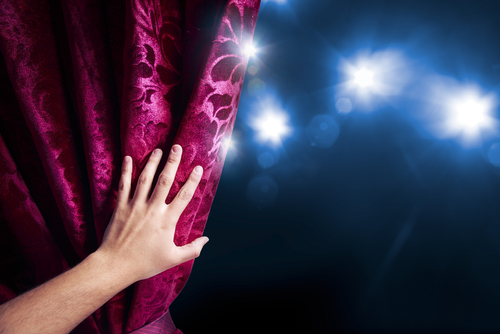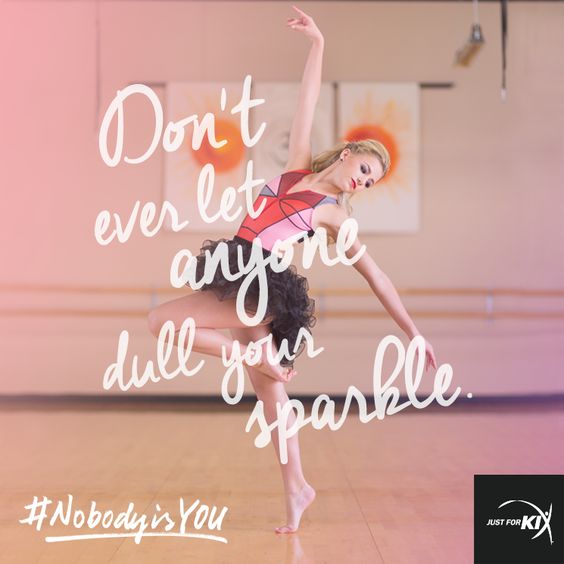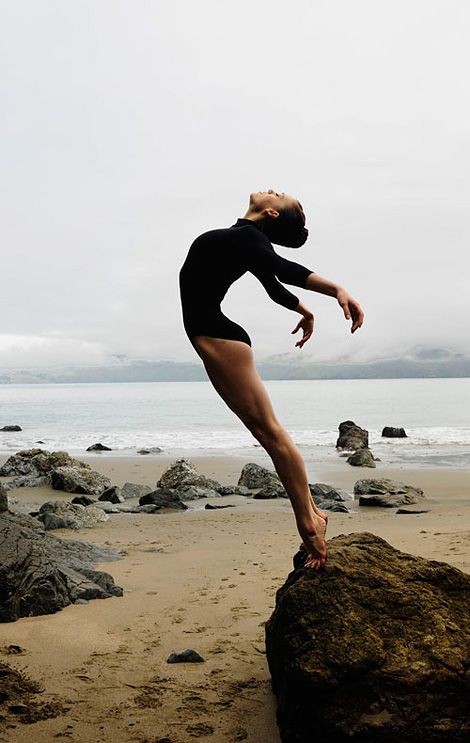Dance Talk
Our dance season never ends. Learn dance tips from the best.
How To Help Students Conquer Stage Fright


Dance class is a breeze. But when the time comes to perform on stage -- in front of an audience -- one or some of your students freeze up. First, don't freak out. Many dancers suffer from stage fright and are either able to overcome it completely, or can learn coping methods for dealing with it.
In fact, one of the world's most famous dancers, Mikhail Baryshnikov, suffers from stage fright. Not only does he experience intense stage fright, but he reports that it's only gotten worse over the years.
So while stage fright isn't fun -- whether you're the dancer or the teacher -- take heart. There are ways you can teach your students to deal with it so they can deliver a knock-out performance. Here's a look at 9 tips for conquering stage fright:
Tip #1: Get them into the space.
If possible, have your dancers rehearse in the actual space where they'll be performing. This will give them an opportunity to feel out the stage and feel more familiar with the room as a whole when it comes time to perform. Familiarity breeds comfort -- so doing this will help to alleviate some anxiety.
Tip #2: Ensure they're comfortable in the costume.
If your dancers are constantly adjusting their dance outfits, or if their dance bra tops are too loose or too tight, they're going to feel more nervous than ever about performing. That's why it's important to choose a costume with fabrics that provide a secure fit and also plenty of flexibility. That way your dancers won't have to worry about a wardrobe malfunction.
Tip #3: Help dancers relax.
Don't just tell your dancers to relax. Show them how to do it. Whether it's humming quietly, chewing gum, or finding a quiet place to sit and reflect, there are many different ways for dancers to relax before a big performance. What works for one dancer may not work for another; that's why it's important to offer different options.
Tip #4: Make sure they breathe.
One of the most effective ways to relax and combat stage fright is through breathing exercises. Have your dancers close their eyes and simply focus on their breathing. They should inhale deeply into their belly and lungs, hold their breath for a few seconds, and then slowly exhale -- and repeat. They should get to a point where no thoughts are entering their minds; they're just totally focused on breathing.
This is important for two reasons: 1) Focusing on breathing takes the mind off the upcoming performance. And 2) When people are nervous, they forget to breathe. But when you make a concerted effort to breathe, this increases the oxygen supply to your brain and stimulates the opposing parasympathetic reaction -- which actually calms you down. In addition, deep breathing can also help slow down a racing heart and relax tense muscles.
Tip #5: Tell them to imagine their performance.

Visualization can be a powerful antidote to stage fright. Tell your dancers to close their eyes, relax their bodies, take a few deep breaths, and imagine their performance from start to finish. They should be thinking through every detail, from the lights and music to their actual dance moves. In essence, your dancers should be mentally projecting themselves into the moment they are performing. This will help them to be more comfortable once on stage and overcome some of their anxiety. Of course, you can also instruct your dancers to follow the old tried-and-true method of imagining the audience without clothes on.
Tip #6: Give them space to release nervous energy.
When you have younger dancers full of nervous energy, it can be helpful to give them some room to walk or run it off. If there isn't the space for that, then have them stand in one spot and wiggle their bodies from head to toe to help get rid of some of the adrenaline that's causing the nervous energy.
Tip #7: Tell them to focus.
Instruct your nervous dancers to find one friendly audience member -- whether it's a stranger or someone they know -- and focus on them during their performance. They should ignore the rest of the audience and pretend they are only dancing for that one person. Since stage fright comes from being hyper-focused on the performance and the potential for mistakes, you can also tell dancers to focus on the music too. The music will be their guide if they start to feel lost in the performance.
Tip #8: Help them remember.
Unfortunately, stage fright doesn't usually only happen once or twice. It's a recurring issue that will hopefully diminish over time. So if your dancers successfully coped with it in the past before a performance, remind them of that situation via a pep talk. Tell them that they are accomplished dancers who have practiced hard and have many other excellent performances under their belts. Ask them to recall details from one of their best performance and how well it went. Have them close their eyes and think about how it felt. You want them to get into the zone of confidence so they are focusing on their abilities and not on their fears.
Tip #9: Help dancers improvise.
One of the biggest fears leading to stage fright is the fear of forgetting the steps and freezing on stage. But when you teach your dancers how to improvise -- and to just keep moving and smiling during the performance -- they will know what to do if they forget a piece of the choreography. This can help reduce the sense of fear and anxiety they have about performing.
In the end, it's perfectly natural for your dancers to feel stage fright. Some won't feel it all, while others will struggle with it for years or even continually. So if you have dancers, or one in particular, with stage fright, don't diminish their feelings. The fear is real, but the coping mechanisms listed above can help them to deal with those feelings and channel their energy into delivering a great performance.
Need help finding fun, fresh costumes -- ones that offer security and flexibility -- for your dancers? Just for Kix can help. From dance outfits to dance bra tops, bottoms, and accessories, we carry everything you need to ensure your dancers don't just look terrific -- but feel confident too.

Follow Us
Follow Us online, join our conversations, engage with our teams around the world!